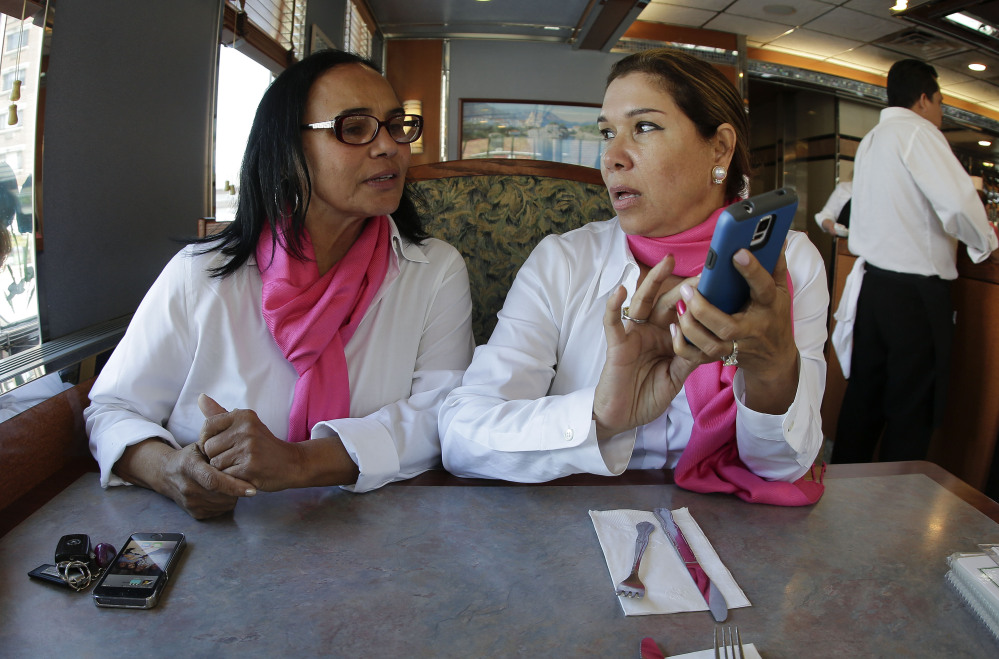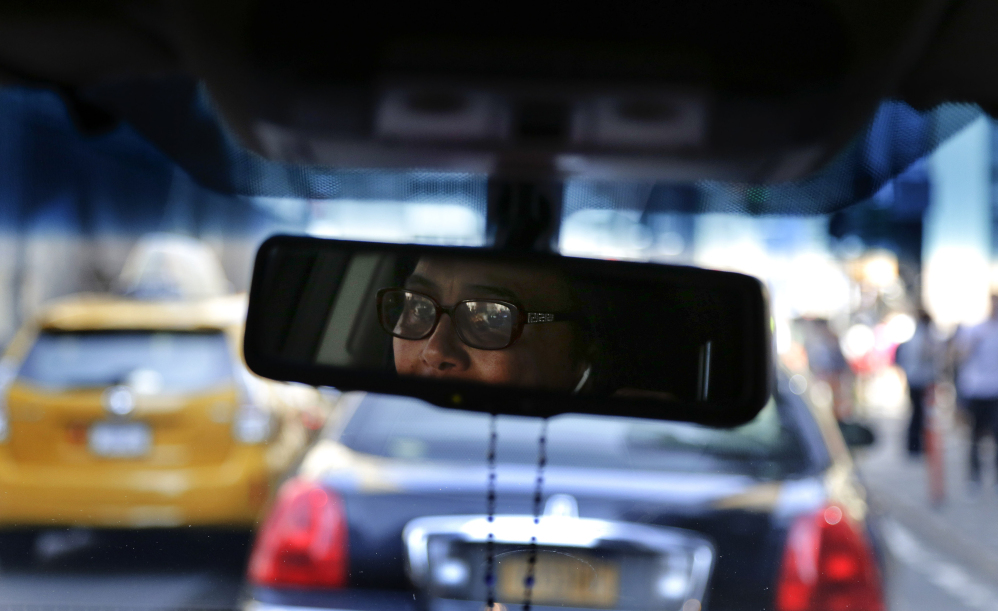The Associated Press
NEW YORK — Sometimes a woman can be hard to find – if you’re looking for one behind the wheel of a taxi in New York City.
Less than 3 percent of the city’s 115,000 licensed taxi, livery and limousine drivers are women, and that can be a problem for women who are reluctant to get into a cab alone with a male driver because of safety concerns or religious and social mores.
An app called SheTaxi would locate taxis with a woman behind the wheel in New York City, Westchester County and Long Island. The app was scheduled to launch Monday, but its creator, Stella Mateo, has delayed it until she gets more drivers. She estimates around 500 drivers would be needed to make it viable.
Mateo said about 100 women have signed up as drivers so far. They will wear pink scarves, making it easy to identify them.
“Why don’t we have female drivers exclusively for female riders? It would be nice to have that choice,” Mateo said Monday. Her husband, Fernando Mateo, is founder of the industry group New York State Federation of Taxi Drivers.
SheTaxi, called SheRides in New York City, has been two years in the making. When it’s launched, it will be available for the iPhone initially, and an Android version is in the works. There also are plans to expand to other cities.
Passengers can pay their fares through the app using a credit or debit card. The drivers would be independent contractors, and Mateo hopes the app will spur more women to join the profession.
Taxi and Limousine Commission regulations say for-hire car services are prohibited from refusing customers. Mateo said female drivers registered with her app are free to pick up anyone they want; the app merely helps women who are looking for female drivers.
The city’s Human Rights Commissioner, Patricia Gatling, said the agency is reminding car service companies that denying service based on gender is illegal under city law.
Such requests are common among some religious communities, like among some Orthodox Jews and conservative Muslims, where social and cultural mores emphasize men and women staying in separate spheres.
“It’s sometimes a little difficult to keep up with the demands,” said Richard Tinel, assistant administrator at Brooklyn Radio Dispatch, which has about 10 women driving. “We lose a lot of calls because we don’t have enough.”
Send questions/comments to the editors.




Success. Please wait for the page to reload. If the page does not reload within 5 seconds, please refresh the page.
Enter your email and password to access comments.
Hi, to comment on stories you must . This profile is in addition to your subscription and website login.
Already have a commenting profile? .
Invalid username/password.
Please check your email to confirm and complete your registration.
Only subscribers are eligible to post comments. Please subscribe or login first for digital access. Here’s why.
Use the form below to reset your password. When you've submitted your account email, we will send an email with a reset code.